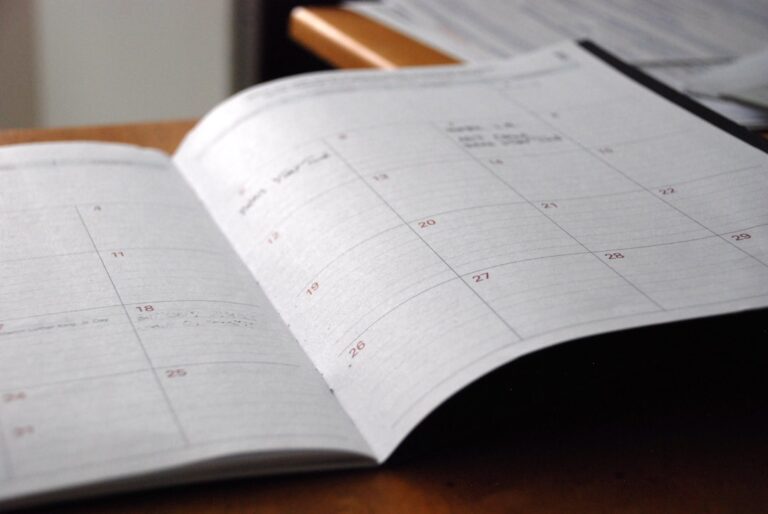
Ever feel like your days just vanish, leaving you wondering where all the time went? You start with big plans, a hopeful to-do list, but then life happens. Distractions pop up, urgent tasks hijack your schedule, and by evening, you’re exhausted, with that nagging feeling you didn’t quite get to what truly mattered. Trust me, I’ve been there. For years, I struggled with feeling unproductive, like I was constantly battling a current of wasted time and procrastination.
It’s a tough cycle to break. I remember days when gaming or just aimless browsing would eat up hours I desperately needed for other things. That feeling of being stuck, of knowing you could do more, be more, but not knowing how to get there, is incredibly frustrating. But here’s the good news: you absolutely can take back control of your time. One of the most powerful ways I learned to do this, and something that genuinely reshaped my days, is time blocking. It’s not about magic; it's about being intentional.
So, what exactly is time blocking? Simply put, it's like making appointments with your tasks. Instead of a loose to-do list, you schedule specific blocks of time for specific activities directly into your calendar. Sounds simple, right? It is, but the impact can be huge.
Why Bother with Time Blocking?
You might be thinking, "Another system? Is it really worth the effort?" I get it. But time blocking offers some real game-changing benefits. It brings clarity to your day. You know exactly what you should be working on and when. This massively reduces that overwhelmed feeling because you’re not constantly deciding what to do next.
It helps you focus. When a task has its own dedicated time slot, you’re less likely to get sidetracked. Plus, it ensures that your important, non-urgent tasks—the ones that truly move you forward—actually get done, instead of being perpetually pushed aside by "fires" that need putting out. It's about working smarter, not just harder.
5 Time Blocking Techniques That Actually Work
There are a few different ways to approach time blocking. The best one for you might depend on your personality and the kind of work you do. Here are five techniques that have proven effective for many, including myself:
- The Classic Calendar Block
This is the foundation. You literally schedule everything: work projects, meetings, emails, exercise, even breaks and meals. Treat these blocks like real appointments. If someone asks for your time, you check your calendar. It sounds rigid, but it actually creates freedom because you know everything important has a place. - Task Batching for Peak Efficiency
Constantly switching between different types of tasks drains your mental energy. Task batching means grouping similar small tasks together and doing them in one dedicated block. For example, answer all your emails in one go, make all your calls back-to-back, or run all your errands in a single trip. I find this especially helpful for admin work; getting it all done at once clears my head for more focused tasks later. - Day Theming for Deep Work
If you have different kinds of responsibilities, try assigning a theme to each day. For example, Monday could be for planning and admin, Tuesday and Wednesday for deep work on major projects, Thursday for meetings and collaboration, and Friday for wrapping things up and preparing for the next week. This helps you mentally prepare and allows for longer, uninterrupted stretches of concentration. - The "Eat That Frog" First Block
Mark Twain once said that if the first thing you do each morning is to eat a live frog, you can go through the day with the satisfaction of knowing that that is probably the worst thing that is going to happen to you all day long. Your "frog" is your most important, often most challenging, task—the one you're most likely to procrastinate on. Schedule it for the very beginning of your workday when your willpower and energy are typically highest. I used to be a master procrastinator, especially with tasks I dreaded. Pushing them off just made me feel worse and cast a shadow over my whole day. Now, tackling that "frog" first thing gives me a huge sense of accomplishment and momentum. It's a game-changer for beating laziness. - Buffer Blocks for the Unexpected
Life is unpredictable. Meetings run over, unexpected issues arise, or tasks simply take longer than planned. If your schedule is packed too tightly, one small delay can derail your entire day. That’s why buffer blocks are essential. Schedule 15-30 minute blocks of "empty" time throughout your day. Use them to catch up, transition between tasks, take a quick break, or deal with those little surprises. This makes your schedule resilient and realistic.
Making Time Blocking Work for You
Starting with time blocking can feel a bit clunky, but stick with it. Here are a few tips to make it a sustainable habit:
- Be Realistic: Don't try to schedule every single minute, especially at first. And don't overcommit. It's better to schedule fewer things and actually complete them.
- Review and Adjust: Your time blocking system isn't set in stone. At the end of each day or week, take a few minutes to see what worked and what didn't. Are your time estimates accurate? Are you scheduling the right tasks at the right times? Adjust as needed.
- Protect Your Blocks: This is crucial. Treat your time blocks like important meetings. Unless it’s a true emergency, try not to let interruptions derail you. This is where I found that building a routine with short bursts of deep work—say, 2 to 4 hours of really focused effort—became incredibly effective. By blocking out that time and protecting it, I get more meaningful work done than if I tried to "work" for 8 hours while constantly being distracted.
- Celebrate Small Wins: When you stick to a block and complete a task, acknowledge it! This helps build positive momentum and makes the process more enjoyable.
A Final Thought: It's About Intention
Ultimately, time blocking isn't just about cramming more tasks into your day or becoming a productivity machine. It's about being intentional with your most precious, non-renewable resource: your time. It’s about making sure you’re dedicating time to what truly matters to you – whether that's your work, your family, your health, or your personal growth.
For me, being intentional with my time also creates space for what gives my life deeper meaning. A well-structured day helps me ensure that I’m not just busy, but that my efforts align with my values and purpose, including time for prayer and reflection which are vital for my Christian Orthodox faith. It's about creating a life that feels less chaotic and more aligned with what I believe in.
Time blocking gives you the framework to do that. It helps you move from being reactive to being proactive. So, why not give it a try?
What’s one small block of time you can schedule for tomorrow to work on something that truly matters to you? Just one. Take that first step, and see how it feels. You might be surprised at how much control you can reclaim.





